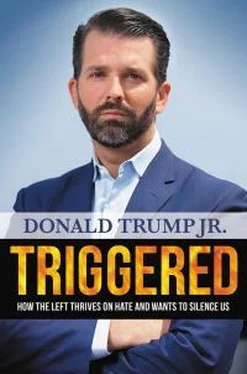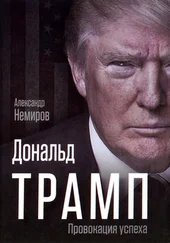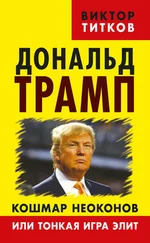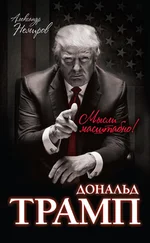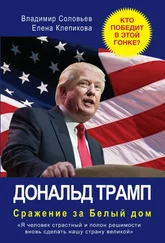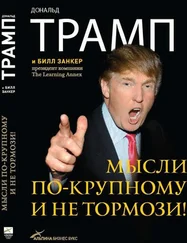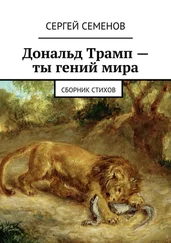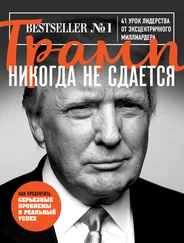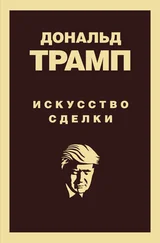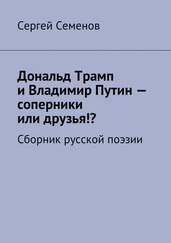After my father was elected, some members of the establishment weaseled their way into the White House. They were supposed to act as “the grown-ups in the room” or “guardrails” to keep the Trump presidency from driving off a cliff. Yeah, right. When DJT got into that car, it was just about to do a Thelma and Louise. He was the one who slammed on the brakes just before it went over. He was the one who got us back up onto the highway. One by one, DJT got rid of the guardrails—or speed bumps, as we like to call them—and got the West Wing humming just like Trump Org, or the 2016 Donald J. Trump for President campaign: lean and mean.
In less than three years, my father has almost completely reconfigured the Republican Party, a political entity that, frankly, was headed toward extinction. In less than one term, he’s torn down an establishment structure that took fifty years to build. Today, most establishment Republicans have little or no significance in the political world, certainly not the ones who oppose Donald Trump. Some saw the error of their ways and joined the Trump team (I’m sure there’s a phony or two in that group, but they always eventually show their true stripes). Others, it seems, have fallen off the face of the earth. Today, Bob Corker and Jeff Flake couldn’t get elected dog catcher. Paul Ryan got so embarrassed by how out-of-touch he’d become that he had to retire. Out of all the establishment Republicans who didn’t understand my father, Paul Ryan was by far the most confused. Good riddance. Whether relevant or not, most members of the Republican establishment now realize that the Trump administration is a once-in-a-lifetime chance to right the wrongs of a couple of generations of Democrat and old-guard Republican rule. The ones who don’t will be unemployed soon enough.
It’s been amazing to watch.
Until my father announced that he was running for president, the idea of my entering politics was about as remote as my becoming a vegan. Sometimes, however, circumstances direct the roads you take. If you remember back, the press and the political world at large didn’t take my father’s campaign seriously at first. They called it a publicity stunt that would last a couple of weeks at best. That belief was pervasive and didn’t help our recruiting efforts, so we did it ourselves, our way, without the so-called experts. We weren’t exactly the Jeb Bush juggernaut. Without political professionals, we did what we always do as a family: we filled the voids. I had experience on TV, so I became a surrogate before we even had surrogates. I still had responsibilities with Trump Org, but I helped as much as I could. So did the rest of the family. That’s the way we are. We just did more and slept less… a lot less.
Along with being pretty handy in front of a camera, I also brought something else to the campaign. Like everyone in the beginning of the race, we focused on the Iowa caucuses, the first of the presidential primaries. It was in Iowa that I began to realize that my life up until then had prepared me for my father’s campaign.
In January 2014, Terry Branstad, then the governor of Iowa, invited me to his annual deer hunt in Centerville, Iowa. The hunt is sponsored by Knight Rifles, which is located in Centerville. It hooked me up with a volunteer guide named Doug Hurley. For the last twenty-five years, Doug’s been a special agent with the narcotics division of the Iowa Department of Public Safety. He and I hit it off right away.
As it happened, the day of the hunt, a polar vortex from Canada descended over Iowa. Saying it was cold that week is a distinct understatement. I’m sure Doug thought that some Fifth Avenue billionaire’s son wasn’t about to go out and hunt with a −50° F wind-chill factor. I might have surprised him when I showed up, ready to go.
For five hours, we stood on a hillside with the wind in our faces, waiting for the deer to come through. Doug was behind an evergreen tree, while I used a fence post for protection. When we called it a day, Doug came over and fist-bumped me. “New York City!” he said. “I never thought you could handle this!”
I stayed in touch with Doug and called him before the Iowa caucuses. I flew into Des Moines about one in the morning and drove down to Appanoose County, where he lives.
Doug was nice enough to let me stay on his basement couch for four or five days. I’d do radio hits in the morning; then we’d go hunting the rest of the day or just hang out with his pals. The governor’s deer hunt was held that week also, and we hunted again in that.
A few weeks later, I was with Doug again. This time it was a pheasant hunt, and Maggie Haberman from the Times and a couple of other reporters tagged along. By then my father was locked in a tight race with Ted Cruz and Marco Rubio (and about one hundred other people) and, though biased, the press was all over our campaign.
I don’t know what Maggie and her reporter friends were expecting. Maybe they were hoping for me to shoot myself in the foot or pull a Dick Cheney and shoot a pal in the face. At one point, one of the reporters asked how they would know I was for real—meaning, not just one of these politicans who shows up with a smile on their face and brand new hunting gear looking for a photo-op.
“How many birds did you see go up?” I asked.
“Nine,” they said.
“How many shots did I take?”
“Nine,” they answered.
“How many birds am I holding now?” I asked.
“Nine.”
“Do you have any other questions?” I said, smiling.
“Damn, you’re a pretty good shot,” Doug said afterward. “Especially under pressure with camera crews and Jake Tapper in tow.” It was high praise coming from a hunter like him.
The ease I had around people like Doug and his friends started to multiply on the campaign in ways I couldn’t have imagined. Look, I know my appearances on The Apprentice gave me a touch of celebrity, and I also know that my father’s message was like water in the desert for his people. They wanted it that much. But I was able to talk to people who came to events in a way the other surrogates, even candidates, couldn’t. I had spent most of my youth out in the Rust Belt. In a very real sense, these were my people. Unlike many New York City socialites, I didn’t have to try to connect with them. I was one of them. They saw that I’m not an out-of-touch elitist, that I relate to people and people relate to me. They liked that I was a hunter and that I had a good sense of humor. They liked that I felt at ease in front of a crowd. When I added it all up, I realized that I brought something to the campaign that no one else on our team could. Although I didn’t know it then, because of that something, I would become the tip of the spear of the greatest political campaign ever. I distinctly remember the moment I began to sense something special was happening. It was in the Western Slope of Colorado, doing a solo event in a gym auditorium where Hillary had spoken a few days before. The state campaign people called me and said, “Don, we have a problem. We have to move the venue.” I thought they were going to tell me that not enough people were showing up.
“We were hoping for three hundred,” they said, “and we’ve already got twenty-four hundred.”
“Do they know it’s Donald Trump Jr. ?” I asked.
“Yeah,” they said. “Your photo is on the advertisement.”
“Okay,” I said, “but I don’t want to get sued for false marketing. Don’t want people to think it’s the old Donald Trump bait-and-switch.”
When I found out that Hillary had drawn only 150 or so when she had done her event, it just about knocked me over. I felt the same way when I started having people come and help me out on the stump. All throughout the campaign, I had some terrific opening acts. Mark “Oz” Geist is one. A retired Marine, Mark was a member of the annex security team in Benghazi and survived to tell the story. Mark would show up and campaign with me all across the United States. He introduced the campaign to countless veterans and current active duty members. A true patriot, Mark is who you want next to you in battle.
Читать дальше
